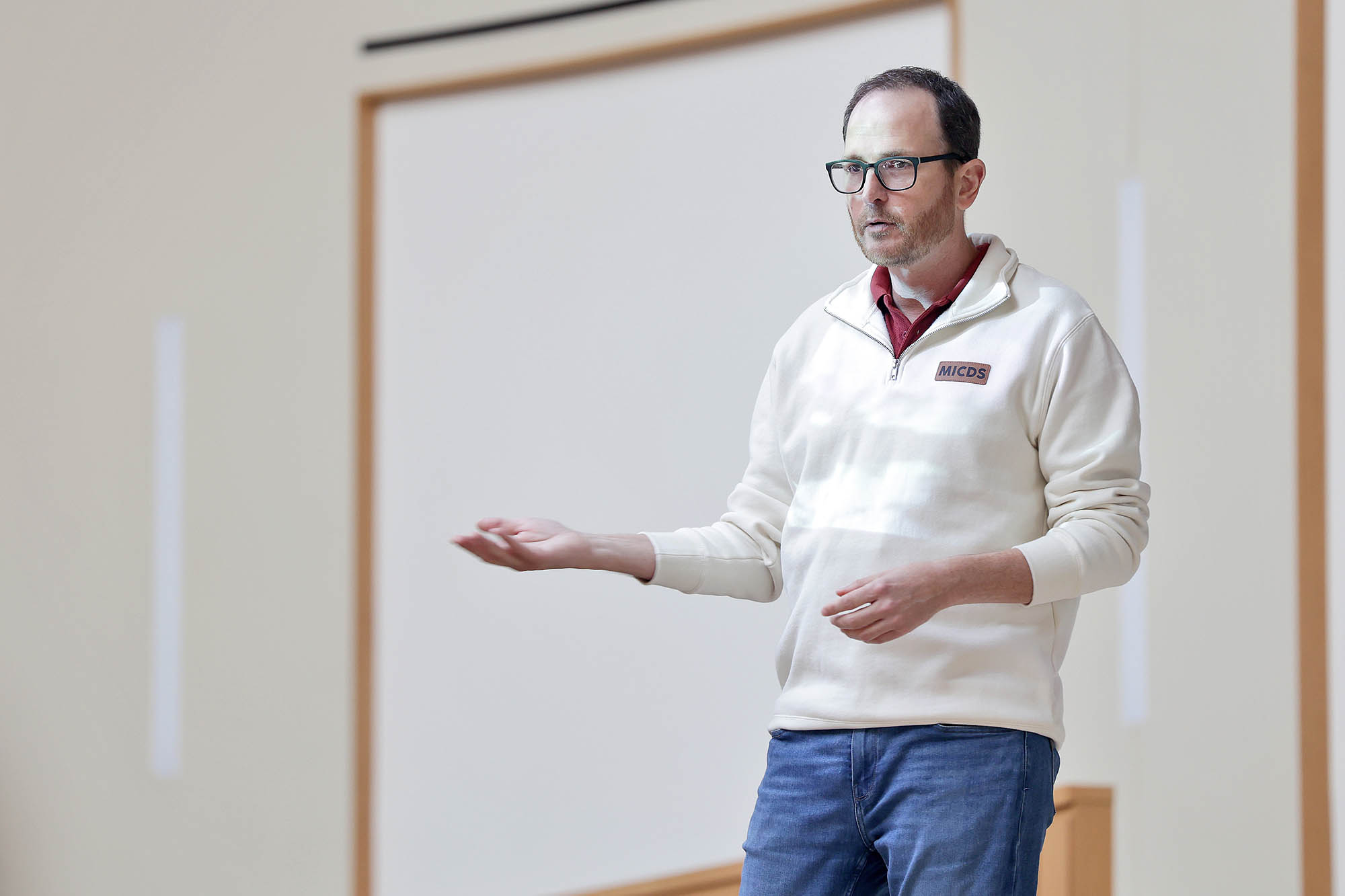Tex Tourais, Dean of Digital Literacy, addressed Upper School students and teachers at an assembly on Friday, August 29, about the role of artificial intelligence at school. He showed a brief, well-known clip of Disney’s 1940 animated music film, Fantasia, which features Mickey Mouse in the novice role in a section with Paul Dukas’ symphonic poem The Sorcerer’s Apprentice. Here is how Mr. Tourais shared a metaphor many have used to describe both the power and the limitations of AI, specifically tied to our introduction of Flint as an educational tool.
“I ended that clip with a final image of the cost of incompetence, but I want to go back a tick to this moment here, this moment of Mickey, dreaming and triumphant. Mickey has enough knowledge to cast the spell, but he does not have the knowledge to control the spell. But he thinks he does, so he lets his guard down and falls asleep, secure in the knowledge that he knows what he’s doing. And that is his undoing.
“And the problem is that AI is so very new, and that new-ness makes us all apprentices. There are no sorcerers here; nobody has experienced the consequences of a decade of unimpeded AI development, so no one is in a position to anticipate the pitfalls. We’re a world of Mickeys, thinking we’re in control of the magic, but we are asleep and the water is rising and the chair is rocking…and, quite frankly, it’s time to wake up. Time to become aware of what we don’t know.
“Which brings us to Flint. Flint is a premium Generative AI product. It uses Claude Sonnet 3.7, which makes it equivalent to the premium—not the free, the premium—version of ChatGPT4.0. It’s more private—certainly not private, but private-er—in that all MICDS chats stay here, walled off from third parties and inaccessible to other AI. Now those chats are logged, just as your computers all have monitoring software on them, and I would say this about that: If your goal is to cheat, then yes, Flint will make that more difficult. If the goal is to put in a song and say, “Make me a playlist with 10 songs like this,” Flint will give you one or two, but then it will try to guide you through the process of finding the other eight on your own. So there is still space for ChatGPT or Gemini or Perplexity in your personal life.
“But, during the school day, the goal is to learn, to use AI to enhance your education without unintentionally cheating. Flint provides a safer environment. It’s been built to avoid providing too much help. Your teachers can tell it exactly what questions to answer and which answers to withhold. Other AI is built to give you the answer as quickly as possible so that you become reliant on it and then become lifelong users. That’s just good business sense. If a child of 12 comes to believe that they can’t succeed without ChatGPT, then they are a customer for life. They are a Mickey for life. Believing themselves in control, dreaming of their triumph while asleep, and pathetic, a person to be pitied.
“The world will have no end of Mickeys. That clip is from a 1940 movie based on music from 1797. For over 200 years and for all the years before that, society has always had too many Mickeys. What we need is Sorcerers. People with the skill and experience to control the magic. I believe future Sorcerers are in this room, right now. I believe them to be you. And you. And even you.
“This is a school; whenever you do anything, the act alone is never the goal. We do science to learn to do science better. We do art to learn to do art better. We use AI to learn to use AI better. Flint provides us with a safer—not safe but safer—space to acquire the experience necessary to build the skills to act with true, earned confidence. Because we can look back at the chats and read your prompts and say, ‘No. This is a scholar trying to learn, and the machine failed them. There’s no intent to deceive; there’s no academic dishonesty.’ Full disclosure: it would also allow us to say, ‘Yes. This is a clear example of a child acting unethically in an attempt to undermine their own learning.’ But at least then, we have the opportunity to wake that child up, to encourage scholarship because our Mission Statement commits us to producing sorcerers with the resolve to stand for what is good and right. We are not now, nor have we ever been, a Mickey factory.”
